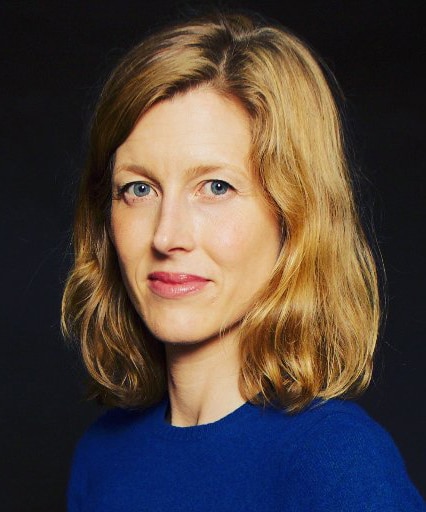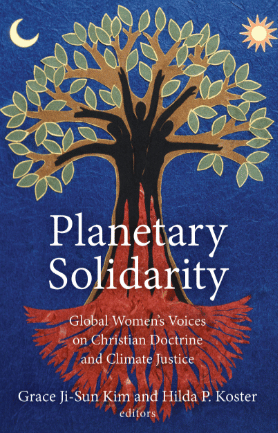
Building a Movement of Resistance to the Fossil Fuel Infrastructure in the Trump Era: An Activist Response to Planetary Solidarity
Originally published on the Feminist Studies in Religion Blog: @theTable
March 25, 2018
This collection of essays is an excellent and necessary contribution to religious thought at this extraordinary time. The impacts of man-made climate change have begun to arrive—the intensified heat waves, droughts, wildfires, and stronger storms, and related effects such as the rising of sea levels and migration and extinction of life forms. There is also a growing awareness of the need to radically change the course of the energy system that is fueling those impacts—the extraction and burning of fossil fuels.
Innovations in renewable energy technology make it possible to make the shift, and the reality that the most vulnerable (and least culpable) are suffering the most gives us even more of a moral mandate to do so. But there is a big force standing in the way. The United States is now the only nation in the world not officially committed to the goals of the Paris Climate Agreement. The current administration (with help from their allies in the House and Senate) has even ordered the phrase “climate change” to be deleted from our government’s websites, as if the nature of this was a problem was such that humanity could press delete and make it go away.
One reason why this collection is so important is that religious assumptions are right beneath the surface of our current politics. Here are two examples from the Trump administration. One is a typical quote invoking a distorted notion of stewardship from the current Director of the Environmental Protection Agency, Scott Pruitt, who is known for his efforts to roll back regulations preventing corporations and other actors from dumping chemicals and toxins into our ecosystems. In November 2017, he stated: “We have tremendous natural resources from coal to natural gas to oil to generate electricity in a very cost-effective way. We should celebrate that and be good stewards.” Another example is from the nominee to be the White House Senior Advisor on Environmental Quality, Kathleen Harnett White. She described concerns about climate change as “a kind of paganism for secular elites.”
The second reason why this collection is so important is that it deals with gender, which is of the essence of the current imbalance within our planet. One of the great developments in the last few years was Pope Francis’ encyclical Laudato Si’: On Care for Our Common Home (2015). It is a beautiful and powerful document—full of insight—but it gets gender wrong. This is not only because of the lack of women’s voices in the text, but also because of the reinforcement of perversely gendered notions of the power to create. Language about a feminine Earth is juxtaposed with language about the Father who wholly created and owns this Earth. The concept of integral ecology (vital in many ways) gets stuck in the reiteration of the related teaching that babies are fully formed in the womb by this patriarchal God (75, 238). The underlying message (in addition the notion that we are in an interconnected web of life with intrinsic spiritual worth) is there can be no co-creation by a female force, whether divine or mundane.
In harmonious contrast, in “Ecowomanist Wisdom: Encountering Earth and Spirit,” Melanie Harris lifts up the creative force within both women and the Earth and gently names the precise blockage to acknowledgment of it. “Often deemed heretical, pagan, and sacrilegious, the powerful connections that can be observed between human life-givers (mothers/creators) and creation as Mother Earth are treated as primary resources for ecowomanist spiritualities” (245). Harris also writes about the web-of-life concept and interconnectedness in African indigenous cosmologies as a source of insight and modes of resistance. Her work gives us tools to recognize the logic of domination, not only through direct race-class-gender analysis but also through tracing the philosophical and political roots of western thought.
In “Trafficked Lands: Sexual Violence, Oil, and Structural Evil in the Dakotas,” Hilda Koster focuses on the conflict at Standing Rock last year. This essay communicates the violence done to the body of the Earth during fracking and its connection to the violence done to the women who are trafficked and sexually assaulted alongside these fracking and pipeline operations. Koster insists that “fracking and sex trafficking come from the same place, namely a fundamental disrespect for physical existence and a denial of out vulnerability as embodied beings” (156). She also explains “the way structural evil operates within the context of fracking, blocks our moral vision” (173). Structural evil is often invisible, we are intricately connected to it through dominant systems in our society, and these systems are largely inherited by us which makes them even harder to confront. With reference to Cynthia Moe-Lobeda’s take on Dietrich Bonhoeffer’s insights on how evil or “structural sin” disguises itself as good, Koster gives us an expansive and realistic sense of what we are up against. Indeed, we must examine the reigning paradigm of production, consumption and “economic growth” if we are going to be able to stop this mindless and self-destructive trajectory.
The costs of climate injustice—to the poor, to the Earth, to future generations, to all other forms of life, and to our own moral integrity—are not counted by our current political dialogue, but they are creatively resurrected in Planetary Solidarity. Heather Eaton’s essay points out the poverty of the language we use to describe our circumstance, including the concept of the Earth as our “home” and argues for a new kind of literacy: “Earth is our source, origin and basis for everything that keeps us alive” (24). Wanda Deifelt takes on the difficult concept of Imago Dei and the legacy of dualistic frameworks, enlightening us with her reading of the Babylonian creation myth that pre-dated Genesis and giving us a sense of what was at stake in the original association of the human with the divine. Jea Sophia Oh writes of the paradox of life from death and teaches that the social pathology of anti-life is different from the natural occurrence of death, as the Korean words jugim (killing) and salim (making things alive, restoring and enlivening) so beautifully illustrate. Barbara Rossing enlightens us about eschatology as a source of healing and hope, a way to find a bridge to a new way of life. Examining ancient (Romans 8:22) and modern (“Santa Claus is coming to town!”) eschatologies, with full understanding of the political manipulations of all these narratives, Rossing rightly sees the power now in our own hands: “We need to find ourselves again in God’s beauty” (346).
Finally, I want to close with an anecdote from my experience as an activist in this city. There are a number of Bostonians who are drawing from deep within their faith traditions to inform and guide them in their active opposition to the building of fossil fuel infrastructure. I joined some of them in June of 2016 in an action of nonviolent civil disobedience in West Roxbury. We laid down in a trench that had been dug for the fracked gas pipeline known as the West Roxbury Lateral portion of the Algonquin Incremental Market (AIM) pipeline, owned by the Texas-based company Spectra, which was recently bought by Enbridge, a Canadian company that also owns a big stake in the Dakota Access Pipeline.
The vision of this action was to use that pipeline trench to invoke the image of– and connection to– the anticipatory mass graves that had been dug that year in Pakistan, in expectation of many hundreds of victims of the extreme heat waves that have begun to plague that region. I was honored to be a part of that vision of solidarity with people living across the world. When I was actually lying in there myself, I was also startled by another type of solidarity—with the Earth herself. The people who gathered around the top of the trench to peer down into it were all uniformed men. The quiet soil below us felt decidedly un-uniformed and powerfully female. For what it’s worth, I vividly recall that feeling today as I salute these extraordinary women theologians for doing the intellectual, imaginative and spiritual work of Planetary Solidarity.
Karenna Gore is the founding director of the Center for Earth Ethics (CEE) at Union Theological Seminary. Ms. Gore’s previous experience includes work as a lawyer at both Simpson Thacher & Bartlett and Sanctuary for Families, director of Community Affairs for the Association to Benefit Children (ABC), and director of Union Forum at Union Theological Seminary. She has also worked as a writer and is the author of Lighting the Way: Nine Women Who Changed Modern America. Ms. Gore is a graduate of Harvard College, Columbia Law School and Union Theological Seminary and currently serves on the boards of the Association to Benefit Children (ABC) and Riverkeeper. She lives in New York City with her three children.

